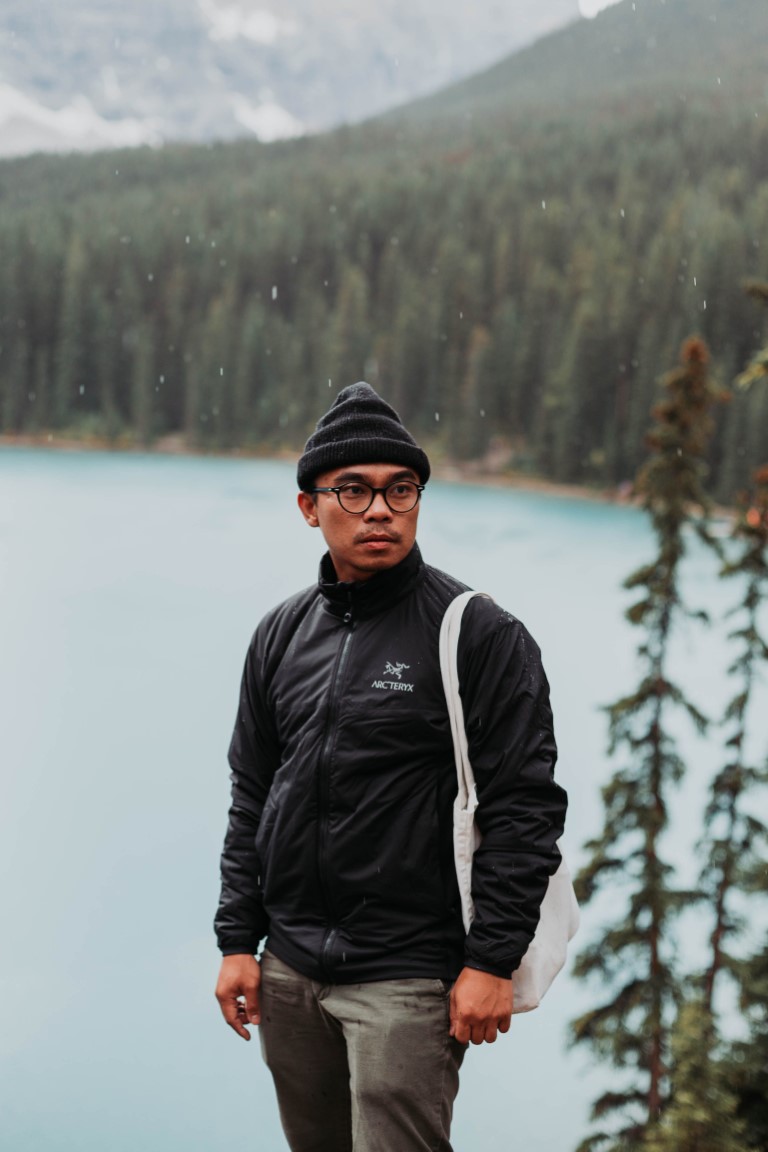
The global pandemic has cast a shadow of uncertainty on every aspect of how we work and live. But for Lethbridge College nursing student Carl Abellana, that shadow was more of a spotlight, shining on his passion for nursing and proving his winding road to the profession was worth every twist and turn.
“I’m still questioning myself about what’s going to happen for me,” Abellana says, after a long stretch of working at a Lethbridge long-term care facility. “But this gave me the lightbulb moment and a reflection to myself that I need to care and I need to serve humanity. It sounds cheesy, but it’s true.”
Abellana is on the verge of completing the first year of the Lethbridge College and University of Lethbridge’s Bachelor of Nursing After Degree program. It recognizes the degree he earned in the Philippines before coming to Canada in 2012. After a year at the college and another at the U of L, he’ll be able to write the NCLEX-RN exam to be a registered nurse.
In addition to school, Abellana works part-time as a health care aide at a Lethbridge long-term care facility. Before the pandemic, he was working every other weekend to make ends meet. Once the crisis began, he decided to pick up more shifts and was entrusted with leading the facility’s internal COVID-19 task force.
Knowing that other staff were already taxed in their roles, Abellana began monitoring and implementing the provincially mandated protocols to control the spread of coronavirus, sharing updates daily with the team and putting preventive measures in place. He began daily screening all staff when they arrived for work for fever or other symptoms and began making similar daily assessments of residents.
With a strict limit on visitors to the facility, he saw the need for comfort and connection between residents and family members in unsettling times.
“I created a Facebook profile for the facility and invited residents’ family members to connect using Facebook Messenger,” he says. “I use my personal phone and iPad for video calls and Facetiming family members and residents. I messaged everybody with an email that said ‘I know this is a time when you need to rekindle and connect within the boundaries of this crisis,’ and I gave them my information. Everyone just started calling and texting that this was a great opportunity to get to see their moms and dads.”
Residents were impressed, too. “They’re so amazed how they can see their family on the iPad. They’ll say, ‘What do you call this thing?’ It’s so cute. I think we already had about 60 call logs (in less than two weeks).”
One family was so moved by Abellana’s efforts, they wrote to the college to acknowledge him.
“With the extra time he has provided me (even outside his volunteer hours), it is clear to me he cares for these residents and will continue to provide them with the care they need in the time that they need him most,” the email read. “If this is what the health industry can expect from him, then he deserves any opportunity that is put on each of your desks.”
Faculty who have worked with Abellana already appreciate his focus and caring.
Shannon Seitz, who teaches in the After Degree program in both theory and clinical practice, says her students come from all around the globe and bring experience in addition to their degrees. “These are students who are extremely driven, focused and committed; Carl is all that.
“It has been just a privilege to watch him in the clinical aspect. When I am walking down the hallways to help other students and Carl is in a client's room, I usually find myself stopping outside the door and smiling to myself at the interactions between Carl and his clients. The future of nursing is in great hands with Carl.”
It's a future that nearly didn’t happen. He earned a nursing degree and passed his RN certification in the Philippines before coming to Canada. Discouraged by the process of recertifying, he worked in the hospitality industry for five years. When he decided to return to nursing, he was denied program admission twice. “I said if the third time I don’t get in, then I don’t think nursing is for me.”
Now Abellana looks to a future in global health, and perhaps pursuing his final preceptorship in Africa.
“This is really a good opportunity for me learning so much about the world, learning so much about pandemics and how to deal with seniors,” he says. “The best reflection for me is that nursing is just not about providing very intricate procedures. It's all about the connection. It's all about the care. And it's all about that human interaction.
“I want to end this by hoping for the best for the human race and praying that we will be able to survive and move forward with lessons learned. We will live in peace and solidarity and always be ready for what the future lies ahead of us.”